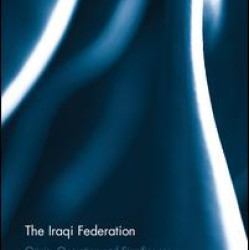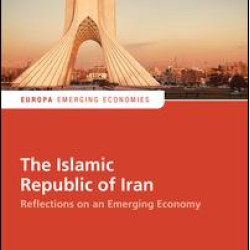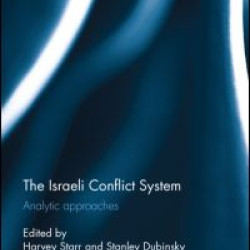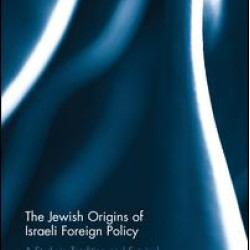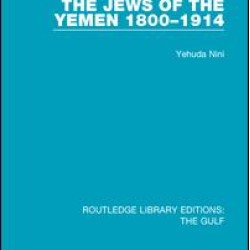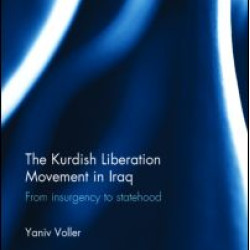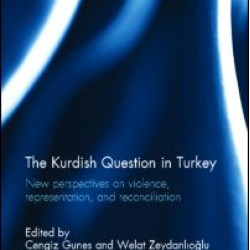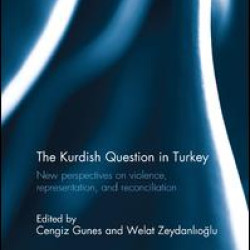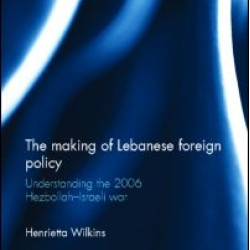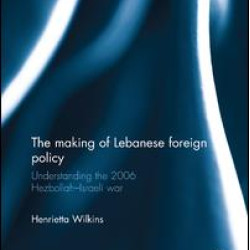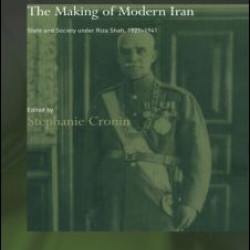Middle East Politics
Brand: Taylor & Francis
Model: Stock
The Iraqi Federation explores why and how Iraq became a federal state, and analyses how the process of formation impacts on the operation of the Iraqi federal system. It argues that the different approaches taken by various federal theorists in the past, particularly William H. Riker’s bargain theor..
₹8,812.80 ₹11,016.00
Brand: Taylor & Francis
Model: Stock
This book studies Iran’s post 1979 Revolution economy under the Islamic Republic and is presented in a novel and fruitful way: combining the text and all its supplemental readings "under one roof’’...
₹8,445.60 ₹10,557.00
Brand: Taylor & Francis
Model: Stock
_x005F_x000D_
The Israeli Conflict System brings together leading conflict scholars primarily from political science, applying a range of advanced, rigorous analytic and data-gathering techniques to address this single empirical domain—the contemporary Israeli Conflict System. Recognising the causal..
₹8,812.80 ₹11,016.00
Brand: Taylor & Francis
Model: Stock
This book examines whether it is possible to identify a Jewish political tradition in Israel’s interaction with surrounding nations. The theoretical perspective and discourse on this interaction is drawn from international politics and foreign policy, as well as from Jewish political studies...
₹8,078.40 ₹10,098.00
Brand: Taylor & Francis
Model: Stock
The upheavals of the period are the framework of this study of the Jewish community, its leaders and institutions. This book, first published in 1991, is not only an important contribution to scholarly work on the history of Muslim/Jewish relations, but also a vivid description of a Sephardi communi..
₹2,275.90 ₹2,844.88
Brand: Taylor & Francis
Model: Stock
In the nineteenth century, the political independence and stability of the Yemen were undermined by outside forces. The Wahabite movement, British naval imperialism and the expansion of the Ottoman Empire all contributed to the decline of the country. The upheavals of the period are the framework of..
₹8,078.40 ₹10,098.00
Brand: Taylor & Francis
Model: Stock
This book examines the political development of Iraqi Kurdistan since 1991 and the end of the first Gulf War...
₹8,812.80 ₹11,016.00
Brand: Taylor & Francis
Model: Stock
Almost three decades have passed since political violence erupted in Turkey’s south-eastern regions, where the majority of Turkey’s approximately 20 million Kurds live. In 1984, the Kurdistan Workers’ Party (PKK) initiated an insurgency which intensified in the following decades and continues to thi..
₹8,812.80 ₹11,016.00
Brand: Taylor & Francis
Model: Stock
This book elaborates on the complexity of the Kurdish question and examines the subject matter from a number of innovative angles...
₹2,789.98 ₹3,487.48
Brand: Taylor & Francis
Model: Stock
This book examines Lebanon’s international political behaviour during the 2006 war between Israel and Hizballah. It tests the hypothesis that sub-state factors, especially identity, are more important than systemic factors for affecting the conditions against which states make foreign policy-decisio..
₹8,812.80 ₹11,016.00
Brand: Taylor & Francis
Model: Stock
This book examines Lebanon’s international political behaviour in the 2006 war between Israel and Hizballah. It tests the hypothesis that sub-state factors, especially identity, are more important than systemic factors for affecting the conditions against which states make foreign policy-decisions...
₹2,789.98 ₹3,487.48
Brand: Taylor & Francis
Model: 9780415450959
The articles in this volume collectively present a picture of Iran under Riza Shah in all its complexity, in darker as well as lighter shades, highlighting the era's debt to the past as well as its legacy to the future...
₹2,643.10 ₹3,303.88


